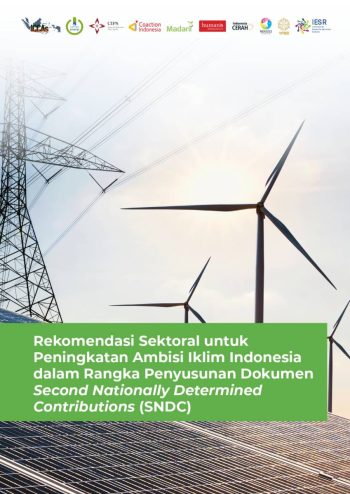This year’s COP-28 in the United Arab Emirates will be the first global stocktake, which will serve as an inventory of countries’ climate actions around the world to see if they are in line with or moving away from the Paris Agreement targets (UNFCCC, n.d.). The results of the First Technical Dialogue of Global Stocktake, which show the gap in action, will be the basis for negotiations and increasing ambition to reduce global emissions under the Paris Agreement. In connection with this, the Government of Indonesia will also update the NDC document to become the Second NDC (SNDC) in 2024.
Seeing the development of Indonesia’s implementation and climate ambition in the NDC, we from civil society organizations see the need to provide research and data-based input on the preparation of mitigation actions in the SNDC in line with the Paris Agreement. The involvement of non-governmental actors is also a manifestation of transparency and accountability in policymaking, which is one of the principles of NDC preparation in accordance with Article 4 Line 13 of the Paris Agreement.
Therefore, the Institute of Essential Services Reform (IESR) and a number of other civil society organizations have developed preliminary recommendations on each sector for Indonesia’s NDC. These sectoral recommendations are based on reflections from previous NDC documents and are also tailored to the expertise and competence of each organization.
We hope that these recommendations from civil society organizations can be integrated into the next NDC development cycle. We are also very pleased if you would like to discuss further the recommendations that we have presented. If you have any questions regarding these recommendations, please contact Mr. Wira A. Swadana via e-mail: wira@iesr.or.id
COP-28, Global Stocktake, Second NDC (SNDC), Paris Agreement, UNFCCC, Indonesia’s climate ambition, mitigation action, transparency, accountability, civil society organizations, IESR, sectoral recommendations

